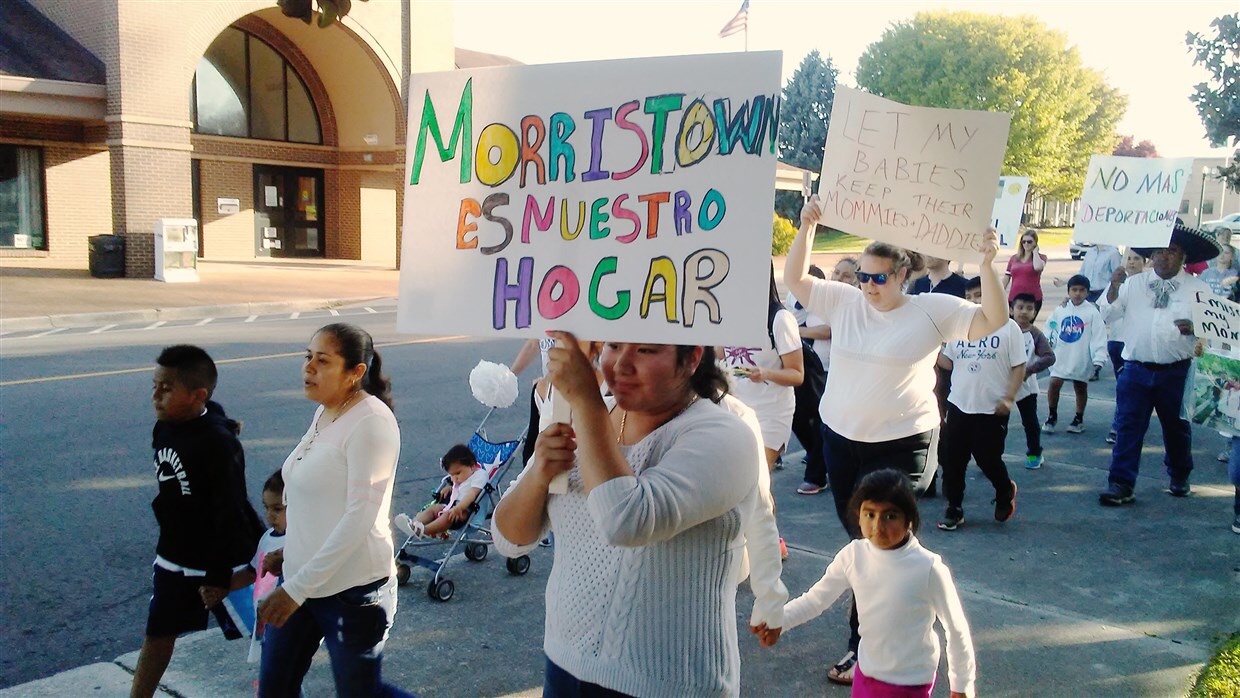
By Kevin Piecuch, Executive Director of the Southwest Detroit Immigrant and Refugee Center
For the last two years we’ve been working with a group of clients who’ve experienced some of the most draconian of ICE actions. On June 5, 2018, the lives of scores of families in Northeast Ohio were turned upside down when more than two hundred law enforcement officers led by federal agents with Immigration and Customs Enforcement (ICE) raided two facilities owned by Corso’s Flower and Garden Center.
That day, 114 persons, nearly all women from Mexico, were taken into custody suspected of violating U.S. immigration laws. Some of those arrested had lived in Ohio for 20 years or more. Many were married and have U.S. citizen children. All lived in small communities around Sandusky Ohio near Lake Erie. This was one of the largest raids ever initiated by ICE.
The effects were immediate and far-reaching. Panicked families were given no information regarding the whereabouts of their family members. Some were sent to detention facilities in Ohio, others to jails in Michigan. Most had never received so much as a traffic ticket and were now confined with dangerous criminals and threatened with deportation.
The community reaction was mixed. Corso’s expressed dismay over the raids and said they had “no idea” so many of their employees lacked legal immigration status. In the end, they provided little assistance. Fortunately, local faith-based organizations including the United Methodist Church-related Starting Point Outreach Center, the Catholic Church-related Immigrant Worker Project, and Hola Ohio, a grassroots outreach movement, rushed in to help. Despite their best efforts, these organizations soon reached out further when the need for financial assistance, child care, and legal services for such a large group and their families overwhelmed their resources.
With nearly half of the incarcerated employees facing cases in Detroit’s immigration court, attorney Jeff Stewart from the Immigrant Worker Project reached out to his friend Kevin Piecuch from the Southwest Detroit Immigrant and Refugee Center (SWIRC) and asked for help with “a case or two.” Without hesitation, SWIRC said “yes.” In the following weeks, Silvia Hernandez from Starting Point Outreach Center and Veronica Dahlberg from Hola Ohio made their introductions and asked SWIRC if they could help more families who were having difficulty finding lawyers in Michigan. SWIRC then turned to Presbyterian Disaster Assistance for help and, thanks to a $24,000 emergency grant, we have been able to provide legal services to thirteen Ohio families.
Over the past two years, SWIRC has come to know and love the families whose lives were turned upside down by the Corso’s raid. Twelve of the women come from Mexico, one is a native of the Dominican Republic. Together, their families include nine husbands or domestic partners and thirty-two children. The youngest client, who is only twenty-two years old, is a victim of human trafficking brought to the U.S. from Mexico when she was a child. Gratefully none of our clients have been deported and we have secured work authorization documents for them which means they can work legally while their cases are pending. While some former Corso’s employees have paid five thousand dollars or more for legal representation, SWIRC’s clients have paid nothing thanks to support from Presbyterian Disaster Assistance!
The Southwest Detroit Immigrant and Refugee Center provides free and low-cost legal services to those who need them most in the Detroit area, with a focus on recent immigrants and refugees.
We were founded in 2014 by Kevin Piecuch, our Executive Director
Donate to support justice for everyone
Volunteer to help serve our client communities
Visit one of our clinics if you need legal help
